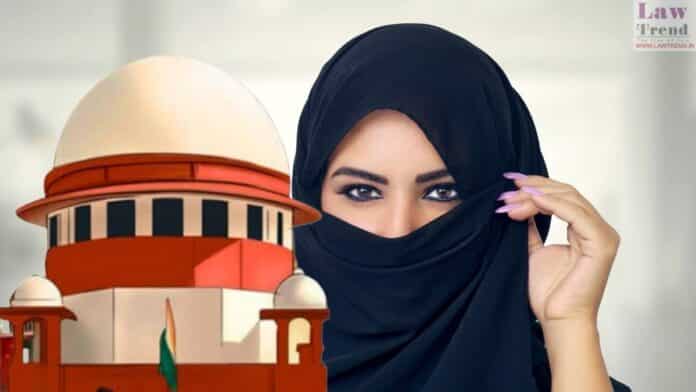The Supreme Court has scheduled a hearing for August 9 to consider a plea challenging the Bombay High Court’s verdict, which upheld a Mumbai college’s decision to ban the wearing of ‘hijab’, ‘burqa’, and ‘naqab’ on campus. The decision has sparked significant controversy and concern among students belonging to minority communities.
A bench comprising Chief Justice D Y Chandrachud and Justices JB Pardiwala and Manoj Misra acknowledged the urgency of the matter following submissions from lawyer Abiha Zaidi, representing the petitioners, including student Zainab Abdul Qayyum. Zaidi highlighted the immediate need for an urgent hearing as unit tests in the college are commencing, and the students are bound to face difficulties due to the dress code restrictions.
Chief Justice Chandrachud responded to the plea, stating, “It is coming up tomorrow (Friday). I have listed it already,” thus confirming the court’s commitment to addressing the students’ concerns promptly.
The Bombay High Court, on June 26, had refused to interfere with the Chembur Trombay Education Society’s N G Acharya and D K Marathe College’s decision to impose the ban. The High Court ruled that such regulations did not violate the students’ fundamental rights. The court emphasized that the dress code is intended to maintain discipline, which falls under the college’s fundamental right to “establish and administer an educational institution.”
The Supreme Court’s upcoming hearing will focus on whether the High Court’s verdict and the college’s dress code policy infringe upon the constitutional rights of students, particularly concerning freedom of religion and expression. This case holds significant implications for educational institutions across the country and the balancing act between institutional regulations and individual rights.
Students and civil rights advocates argue that the ban on religious attire such as hijabs, burqas, and naqabs unfairly targets minority communities and restricts their religious freedoms. The Supreme Court’s decision will be closely watched as it has the potential to set a precedent for similar cases in the future.
Also Read
The case underscores the ongoing debate in India regarding religious freedoms, educational policies, and the rights of individuals versus the administrative autonomy of institutions. The court’s verdict will be pivotal in determining how these issues are navigated moving forward.




